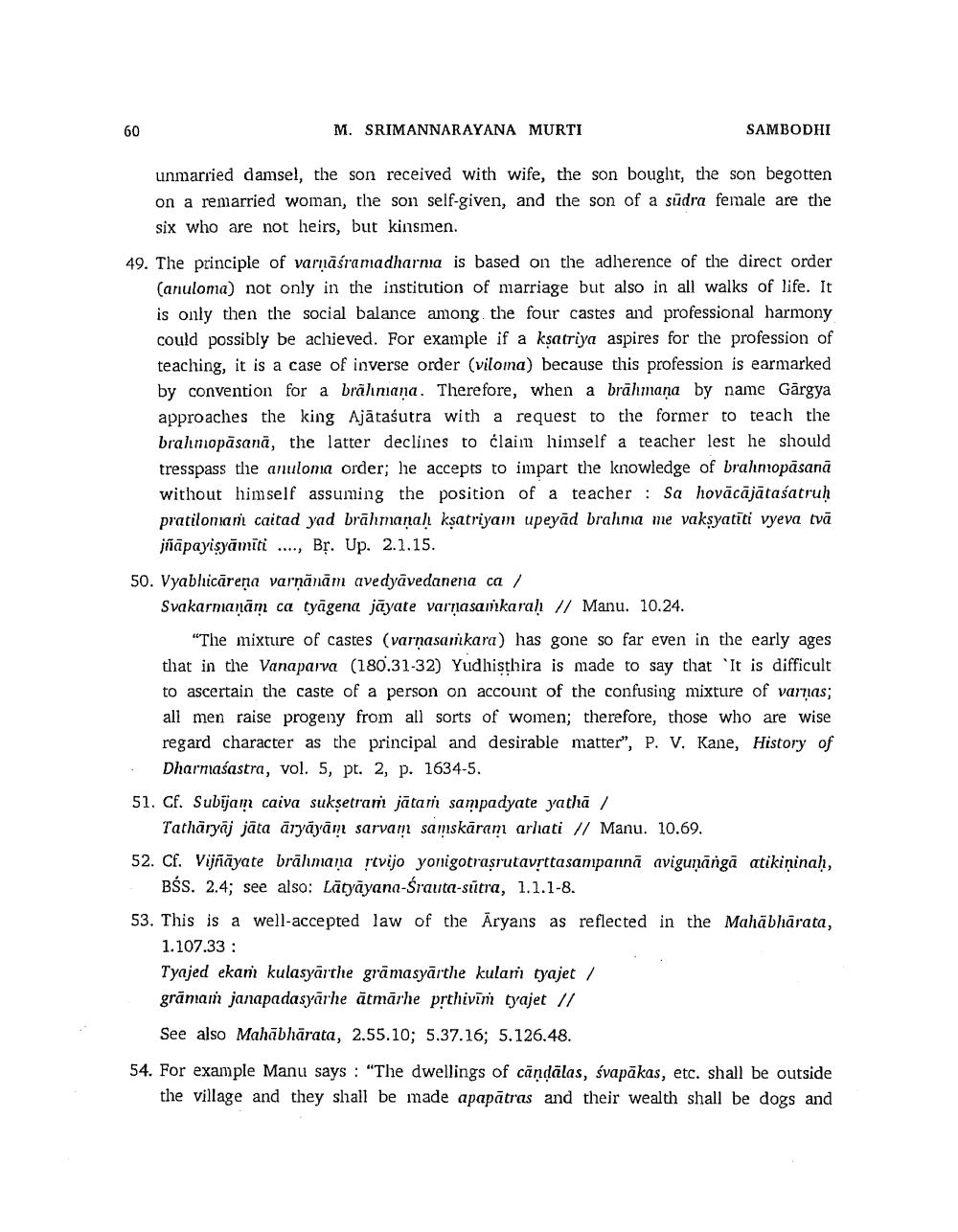________________
M. SRIMANNARAYANA MURTI
SAMBODHI
unmarried damsel, the son received with wife, the son bought, the son begotten on a remarried woman, the son self-given, and the son of a sūdra female are the
six who are not heirs, but kinsmen. 49. The principle of varnāśramadharnia is based on the adherence of the direct order
(anuloma) not only in the institution of marriage but also in all walks of life. It is only then the social balance among the four castes and professional harmony could possibly be achieved. For example if a ksatriya aspires for the profession of teaching, it is a case of inverse order (viloma) because this profession is earmarked by convention for a brālıniana. Therefore, when a brāhmaṇa by name Gārgya approaches the king Ajātasutra with a request to the former to teach the brahmopā sanā, the latter declines to claim himself a teacher lest he should tresspass the anulona order; he accepts to impart the knowledge of brahmopā sanā without himself assuming the position of a teacher : sa hovācājātasatruh pratilonan caitad yad brāhmanah ksatriyam upeyād bralnia me vaksyatīti vyeva tvā
jñāpayisyāmiti ..... Br. Up. 2.1.15. 50. Vyabhicāreņa varņānām avedyāvedanena ca/ Svakarnianām ca tyāgena jāyate varmasankarah // Manu. 10.24.
"The mixture of castes (varṇasanikara) has gone so far even in the early ages that in the Vanaparva (180.31-32) Yudhisthira is made to say that 'It is difficult to ascertain the caste of a person on account of the confusing mixture of vainas; all men raise progeny from all sorts of women; therefore, those who are wise regard character as the principal and desirable matter", P. V. Kane, History of
Dharmasastra, vol. 5, pt. 2, p. 1634-5. 51. Cf. Subijam caiva suksetram jātam sampadyate yathā /
Tathāryāj jāta āryāyām sarvam samskāram arlati // Manu. 10.69. 52. Cf. Vijfāyate brāhmana rtvijo yonigotraşrutavrttasampannā avigumāngā atikiņinah,
BŠS. 2.4; see also: Latyāyana-Srauta-sutra, 1.1.1-8. 53. This is a well-accepted law of the Aryans as reflected in the Mahabharata,
1.107.33 : Tyajed ekani kulasyārthe grāmasyārthe kulani tyajet / grāmam janapadasyārhe ātmārhe prthivim tyajet //
See also Mahābhārata, 2.55.10; 5.37.16; 5.126.48. 54. For example Manu says : "The dwellings of candālas, svapākas, etc. shall be outside
the village and they shall be made apapātras and their wealth shall be dogs and




